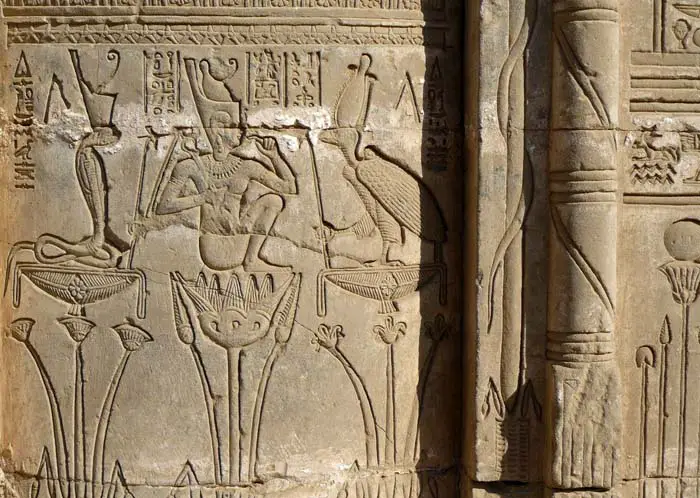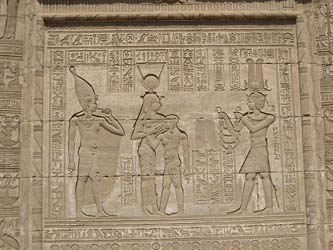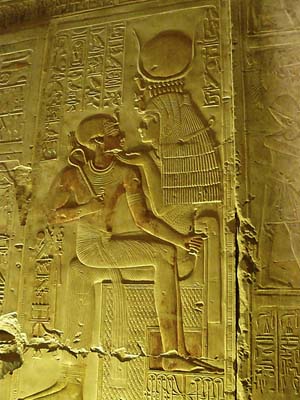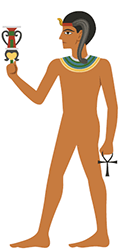Ihy | The Ancient Egyptian God Of Music
Ihy, the ancient Egyptian god of music, played a minor role in Egyptian mythology. Mentioned only a few times in the Coffin Texts and the Book of the Dead, Ihy represented childhood, music and joy. In the form of a child god, Ihy completed the view of gods being connected as a family.
Royal Family
Despite being considered only a minor god in Upper Egypt, Ihy descended from an impressive family tree. The earliest references indicate Ihy to be the child of Horus, Isis, Sekhmet or Neith. Over time the popular view maintained Ihy as the first child of Ra and Hathor. Egyptologists note that he was well loved by his family due to his position as the perfect child. Despite representing all things beautiful in childhood, texts indicate all of Ancient Egypt was in fear of him. This shows that although he was simply a child god, Ihy was still viewed with respect.

© Marie-Hélène Cingal - Relief depicting Ihy at Dendera
Hathor’s temple in Dendera contains the majority of references to Ihy. An important part of the worship of the goddess Hathor, his conception and birth are memorialized on the walls of the mammisi, or birthing house. Ihy, along with the other children of Hathor, was important in transforming the perception of Hathor as a vengeful goddess to that of a kind, loving mother.
Appearance
In the mammisi of the Dendera temple, Ihy is a young, naked boy. He wears side locks of braided hair which indicate his age as less than 14. One hand holds a finger to his mouth, while the other holds his sistrum, a sacred rattle made of brass or bronze. He wears the sacred menat necklace and a red and white Pshent crown adorned with the uraeus.

© a rancid amoeba - Ihy and Hathor(middle)
at Dendera
Joys of Childhood
Known as the Egyptian god of music, Ihy represented the playful side of childhood. As a musical representation of childhood, he was viewed as being the actual joy that comes from playing the sistrum. Upper Egypt associated the playing of the sistrum as a vital part of the cult worship of Hathor.

© Marie-Hélène Cingal - Ihy on Hathor's lap
As with many Egyptian gods, over time Ihy became the symbol for much more than simply music. The joyful celebration of music combined with his role in the worship of Hathor to transform him into a god of pleasure, lust and fertility. He was also known as the “Lord of Bread,” who was in charge of beer. Many Egyptians believed that to communicate with Hathor, they must first become intoxicated. Through worshiping Ihy in this role, they could reach his mother.
His vital connection to his mother became the symbol of devotion between a mother and a child. Because Hathor was known as the cow goddess, it was natural for Ihy to become her calf. Ancient Egyptians would often use an “Ihy” when moving cattle across a river. The “Ihy,” or calf, would be placed in a boat. The mother of the calf would then follow the boat, leading the heard across the river.
Quick Facts
- God of music
- Son of Ra and Hathor
- Represented joyous childhood and the perfect child
- Well respected in Upper Egypt

